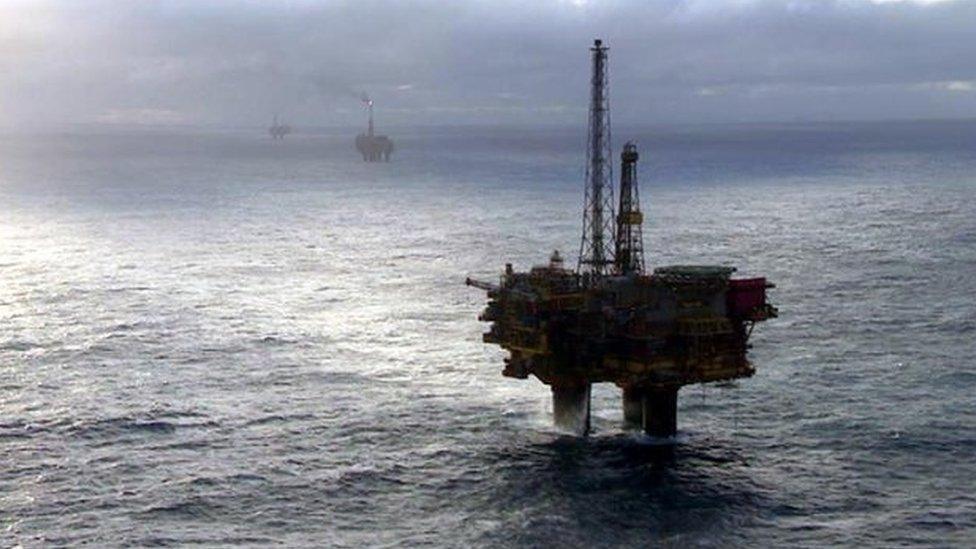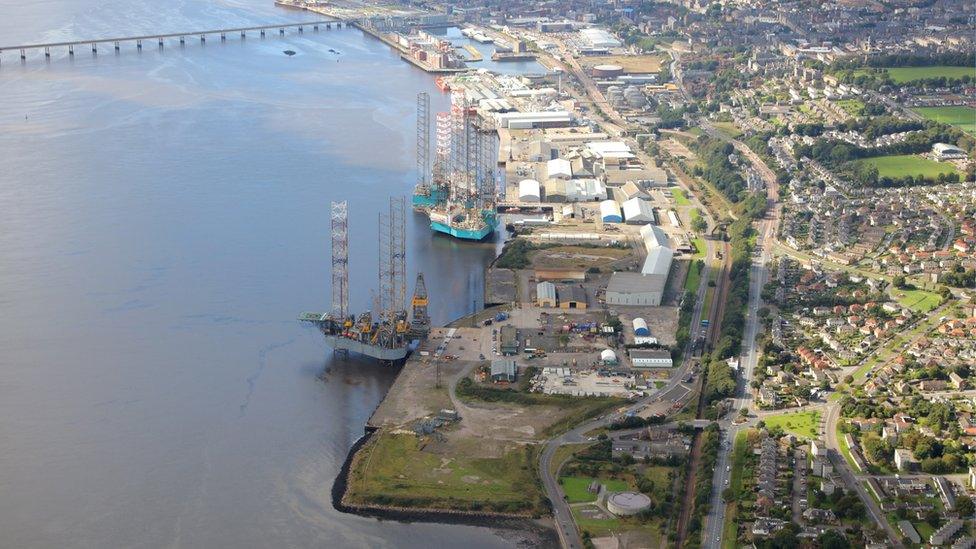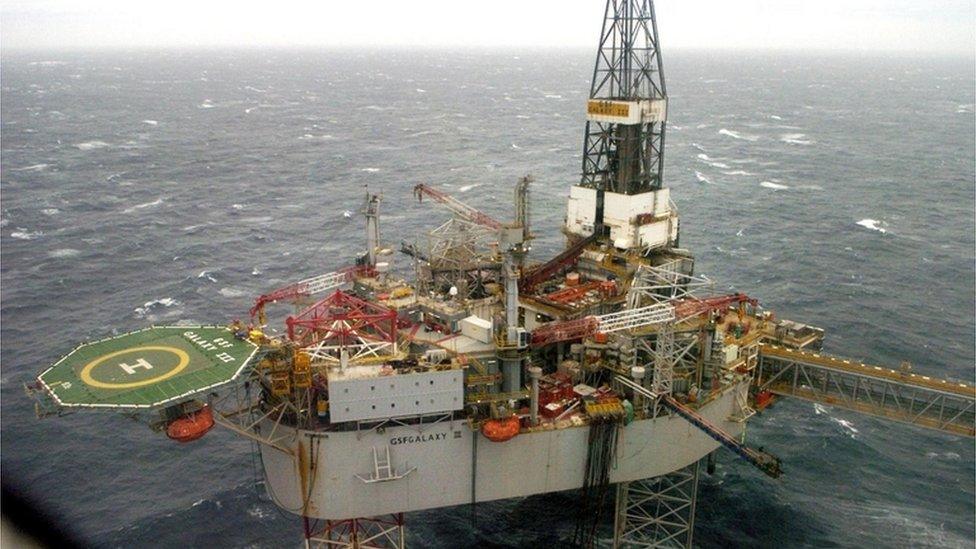Offshore decommissioning 'to grow steadily' in UK and Norway
- Published

An industry survey has forecast a "gradual but steady" rise in offshore oil and gas decommissioning in the UK and Norway over the next 10 years.
Oil and Gas UK found more than 100 platforms are expected to be completely or partially removed from the UK and Norwegian continental shelves by 2025.
More than 1,800 wells are also scheduled to be plugged and abandoned and 7,500km of pipeline decommissioned.
But the industry body said there was not "a rush to decommission".
It pointed out that while 52 new projects appeared for the first time in its annual Decommissioning Insight survey, most had been "a long time in the planning".
Total decommissioning expenditure in the UK and Norway last year was £2.1bn, compared with just under £1.6bn in 2014.
The total amount forecast to be spent on decommissioning on the UK Continental Shelf (UKCS) between 2016 and 2025 is £17.6bn - up on the 2015 survey's 10-year forecast of £16.9bn.
Forecast activity on the UKCS is higher than on the Norwegian Continental Shelf, where fewer fields are reaching the end of their field life. The Norwegian Petroleum Directorate has estimated that annual expenditure on decommissioning will average about £1bn per year until 2020.
'Complex picture'
Mike Tholen, Oil and Gas UK's upstream policy director, said: "With low oil prices continuing, you might expect decommissioning to be a key focus for the sector in the years ahead, however we are not witnessing a rush to decommission.
"Different factors are at play and the picture is much more complex.
"Some companies are deferring cessation of production as field life has been extended by sustained efficiency improvements; others are delaying activity due to cash-flow constraints; while elsewhere, companies may be expediting decommissioning to take advantage of falling costs in the current downturn."
The Scottish government's minister for Business, Innovation and Energy Paul Wheelhouse said he would be visiting the north east later this month to focus on the opportunities of decommissioning.
He added: "Work is well under way with Scottish Enterprise to develop a decommissioning action plan by the end of the year and we are also working closely with Scottish ports and harbours to understand their capabilities and identify how we can help them to take advantage of the opportunities arising from the energy sector.
"Decommissioning is just one of the opportunities, along with opportunities arising to the sector's expertise and capabilities in innovation, to ever more efficiently recover the substantial oil and gas resources remaining the North Sea, and to harness transferable skills to develop offshore renewables - all of which have the potential to deliver enormous economic benefits for the whole country."
Decommissioning Insight 2016 is being launched by Oil and Gas UK at an industry conference on decommissioning in St Andrews.
The report was compiled from the responses of 25 companies operating on the UKCS and six operators on the Norwegian Continental Shelf between June and September this year.
- Published14 November 2016

- Published14 November 2016
